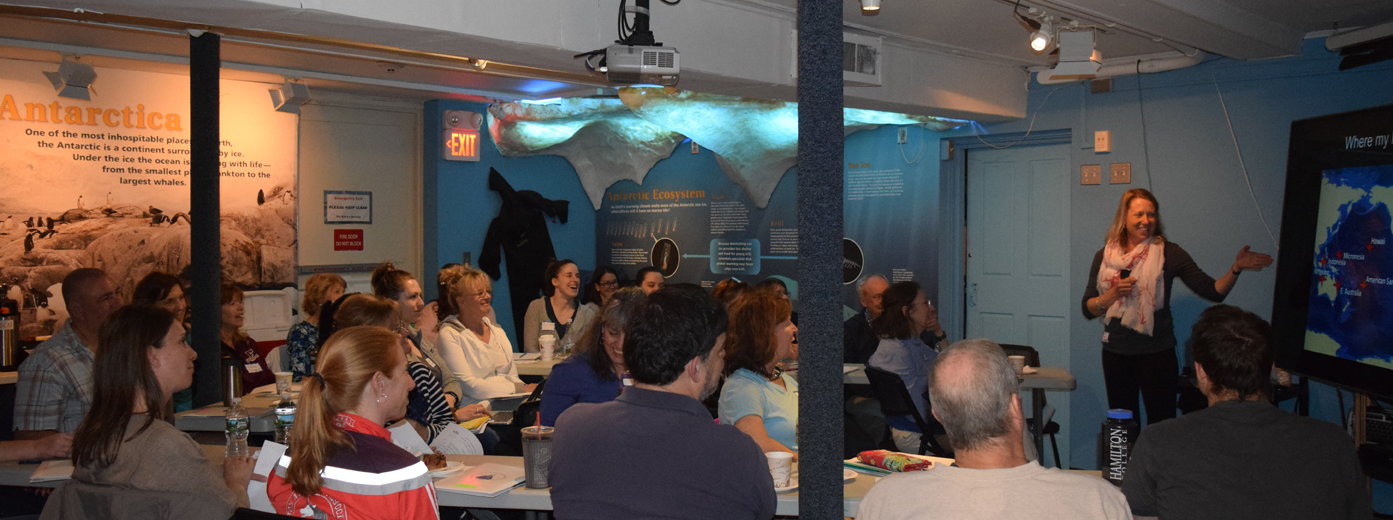Topics in Oceanography Workshops:
Where teachers become the students and scientists become the teachers

A group of twenty-nine middle and high school teachers filled the Woods Hole Oceanographic Institution (WHOI) Ocean Science Discovery Center to capacity on May 4, 2018, for a behind-the-scenes look at the science of and the methods used in studying corals, their symbionts, and climate change. The “Topics in Oceanography” workshop, sponsored by
Woods Hole Sea Grant, the WHOI Information Office and WHOI Academic Programs office, brought together WHOI scientists working at the leading edge of coral research and teachers from school districts as far away as southern New Hampshire and as close as Falmouth for a day of interaction and learning.
“Our workshops let teachers learn directly from the scientists who devote their lives to this research,” said Woods Hole Sea Grant Educator Grace Simpkins. “Teachers value this rare opportunity and tell us it re-energizes them and their students in the classroom.”
Dr. Konrad Hughen, a senior scientist in WHOI’s Marine Chemistry and Geochemistry (MC&G) department, discussed his work studying corals as a record of climate history and
climate change. Hughen brought the teachers on a virtual dive using an incredibly vivid 3-D video of his work taking core samples at coral reefs, giving the teachers a virtual experience of field research. They also heard from Dr. Amy Apprill, an associate scientist in WHOI’s MC&G department, who gave a detailed overview of corals and their symbionts while describing how vital this complex dynamic is to the whole ecosystem. Apprill discussed coral bleaching and how increasingly rare a healthy, undisturbed coral ecosystem is becoming.
“I love hearing from scientists who are currently learning new information from their research,” commented one teacher – a sentiment echoed by many others.
After lunch and some time to experience the WHOI Discovery Center, the teachers explored corals and core drilling in Dr. Hughen’s lab and then toured the WHOI Seafloor Samples Laboratory. They were amazed at the volume of cores stored in the samples facility and impressed by the vast quantities of potential data on hand for future research.
Offered twice a year, the workshops focus on current marine topics and the applicable science education standards. Climate change and human impacts are part of the 2016 MA science, technology, and engineering standards, and several attendees said they plan to integrate what they learned at the workshop into their curriculum to address those standards. “We are introducing more and more climate topics,” said one teacher. “The coral symbionts are a great way to show the impact.” The teachers were also given background material as well as data and sample lesson plans they can incorporate in their classrooms once they return home. “The WHOI/Sea Grant workshops are excellent and a great resource for educators,” an attendee commented.
Teachers attending the “Topics in Oceanography” workshops earn professional development points. If you’d like to be notified about future workshops, contact Grace Simpkins, gsimpkins@whoi.edu.



